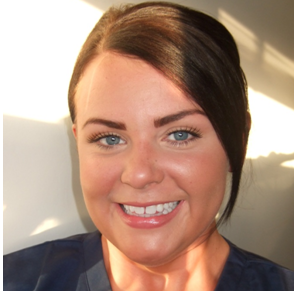 HOME
HOMEWe’ve recently welcomed our first Dental Therapist to the team, so I thought I’d do a blog on what a therapist actually does.
The Dental Therapy profession can be traced back to 1917 where at the time there was a desperate shortage of school service dental officers and the Armed services were recruiting registered (University trained) dentists for World War I. In response to this shortage, some countries in England trained Dental Dressers, this small group of new health care professionals were the first Dental Therapists in the world. Their duties where based on American hygienist with the additions of filling cavities caused by tooth decay and the extraction of teeth in school clinics.
In 1920, New Zealand established a School Dental Service and the formal training of Dental Therapists. As they worked in rural communities they were the first contact point for patients with dental problems. This scheme continues today and has been copied by many countries in the world where there is a rural population.
By 1950, back in the UK, there was once again the desperate shortage of dentists on the local school services and childrens’ dental health was worsening. Dental Therapists again filled this gap (no pun intended!).
From the 1950s to 2002 due to the Dental Act, Dental Therapists where only permitted to work in the community and hospital dental services. In 2002, after years of pressure from the British Association of Dental Therapist, the Dental Act was finally reviewed and amended.
Dental Therapists were finally allowed to work in general practice in both public and private sectors. Over the years the training and qualifications to become a registered Dental Hygienists and Dental Therapist have merged resulting in dual diploma qualification or BSc in Dental Health.

MEET CASS, OUR NEW DENTAL THERAPIST.
So, what does this mean to you? Dental care is developing, Dentists can now delegate a greater proportion of their duties to other dental care professionals.
In regards to dental therapists this may result in you visiting a therapist for a filling, rather than seeing your dentists.
This delegation of treatment is seen throughout other healthcare settings, for example you may see a practice nurse for a medical appointment rather than the doctor, or you may be referred to a physiotherapist for rehabilitation after an injury.
Dental care professions have a scope of practice, that is a list of treatment that they can provide as stated by the General Dental Council (the Dental Regulator).
These are the range of procedures which a Dental Therapist can carry out:
We are all delighted to welcome Cass, who will be able to carry out simple restoration to the highest possible standard. These changes mean we are able to offer a wider range of choices for appointments and providers.
Back to Blog| Cookie | Duration | Description |
|---|---|---|
| cookielawinfo-checkbox-advertisement | 1 Year | The cookie is set by GDPR cookie consent to record the user consent for the cookies in the category "Advertisement". |
| cookielawinfo-checkbox-analytics | 11 months | This cookie is set by GDPR Cookie Consent plugin. The cookie is used to store the user consent for the cookies in the category "Analytics". |
| cookielawinfo-checkbox-necessary | 11 months | This cookie is set by GDPR Cookie Consent plugin. The cookies is used to store the user consent for the cookies in the category "Necessary". |
| cookielawinfo-checkbox-other | 1 year | Set by the GDPR Cookie Consent plugin, this cookie is used to record the user consent for the cookies in the "Other" category . |
| viewed_cookie_policy | 11 months | The cookie is set by the GDPR Cookie Consent plugin and is used to store whether or not user has consented to the use of cookies. It does not store any personal data. |
| Cookie | Duration | Description |
|---|---|---|
| _ga | 2 Years | This cookie is installed by Google Analytics. The cookie is used to calculate visitor, session, campaign data and keep track of site usage for the site's analytics report. The cookies store information anonymously and assign a randomly generated number to identify unique visitors. |
| _gat_gtag_UA_135273458_1 | 1 Minute | This cookie is set by Google and is used to distinguish users. |
| _gid | 1 Day | This cookie is installed by Google Analytics. The cookie is used to store information of how visitors use a website and helps in creating an analytics report of how the website is doing. The data collected including the number visitors, the source where they have come from, and the pages visted in an anonymous form. |
| vuid | 2 years | Vimeo installs this cookie to collect tracking information by setting a unique ID to embed videos to the website. |
| Cookie | Duration | Description |
|---|---|---|
| _fbp | 3 months | This cookie is set by Facebook to deliver advertisement when they are on Facebook or a digital platform powered by Facebook advertising after visiting this website. |